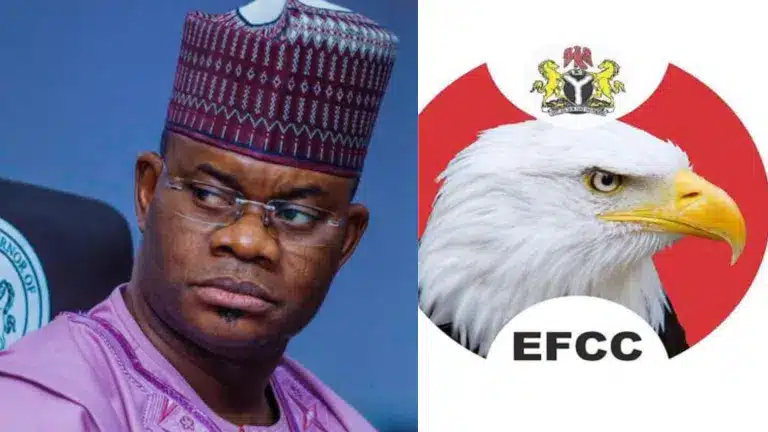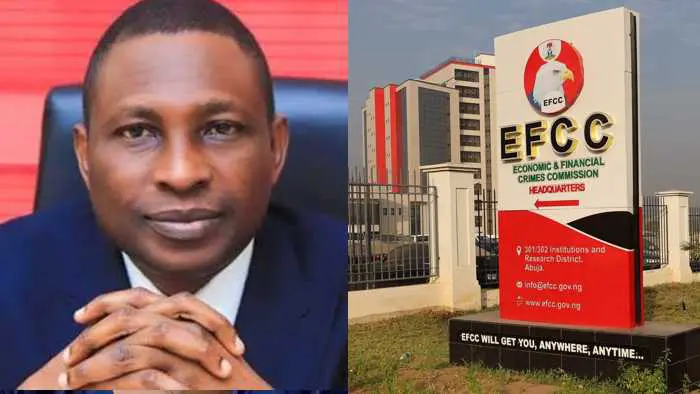News
BREAKING: Anambra State Backs Out of Suit Seeking to Declare EFCC Illegal

The Anambra State Government announced on Tuesday its decision to withdraw from the legal suit challenging the legality of the Economic and Financial Crimes Commission (EFCC) operations. The suit was originally initiated by Kogi State.
Anambra’s Attorney General, Prof. Sylvia Ifemeje, informed the Supreme Court of the state’s withdrawal through a notice dated October 20.
The state chose to pull out of the case just as Osun State, through its Attorney General, Mr. Oluwole Bada, applied to merge its grievances with Kogi State’s case against the EFCC.
Osun State requested to consolidate its complaint with Kogi’s, arguing for similar reliefs concerning the EFCC’s operations.
EDITOR’S PICKS:
- ICYMI: Nigerian TikToker, Oloba Salo Reportedly Shot in Lekki,
- Don’t Scrap the EFCC, Fix It, Fintiri Slams Calls For Abolition
- AFCON Qualifiers: West Brom Celebrate Ajayi On Super Eagles’ Win Over Libya
Meanwhile, Sokoto State, previously listed as a co-plaintiff, did not send legal representation during the resumed hearing.
Several other states, including Kogi, Kebbi, Katsina, Jigawa, Oyo, Benue, Plateau, Cross River, Ondo, Niger, Edo, Bauchi, Adamawa, Taraba, Ebonyi, Imo, and Nasarawa, confirmed their appearances at the hearing.
The Attorney General of the Federation and Minister of Justice, Prince Lateef Fagbemi, SAN, represented the Federal Government as the sole defendant in the case.

The AGF did not oppose Anambra’s decision to withdraw from the suit.
Initially, 16 states had approached the Supreme Court to contest the validity of the EFCC, claiming the agency was not legally established under the administration of President Olusegun Obasanjo.
FURTHER READING
- Nigerian Sentenced To 7 Years In U.S. For Multimillion-Dollar Email Fraud
- Tinubu Mourns Death Mele Kyari’s Daughter, Fatima
- How Nigerian Govt Generated N103.7b From Cash Transfer Levies
The states argued that the EFCC Act was not properly passed, as it did not meet the requirements set out in Section 12 of the 1999 Constitution, which mandates that state Houses of Assembly must consent to certain national legislation.
The states contended that since the EFCC was created without the necessary constitutional approval, it should not be recognized as a valid institution, and its actions should be considered illegal. They argued that any inconsistency between the EFCC Act and the Constitution must render the Act invalid.
Kogi State, which initiated the suit, sought several declarations from the Supreme Court, including a ruling that the EFCC and other federal agencies, like the Nigerian Financial Intelligence Unit (NFIU), lacked the authority to investigate state or local government funds.
Click here to watch our video of the week
Advertise or Publish a Story on EkoHot Blog:
Kindly contact us at [email protected]. Breaking stories should be sent to the above email and substantiated with pictorial evidence.
Citizen journalists will receive a token as data incentive.
Call or Whatsapp: 0803 561 7233, 0703 414 5611















